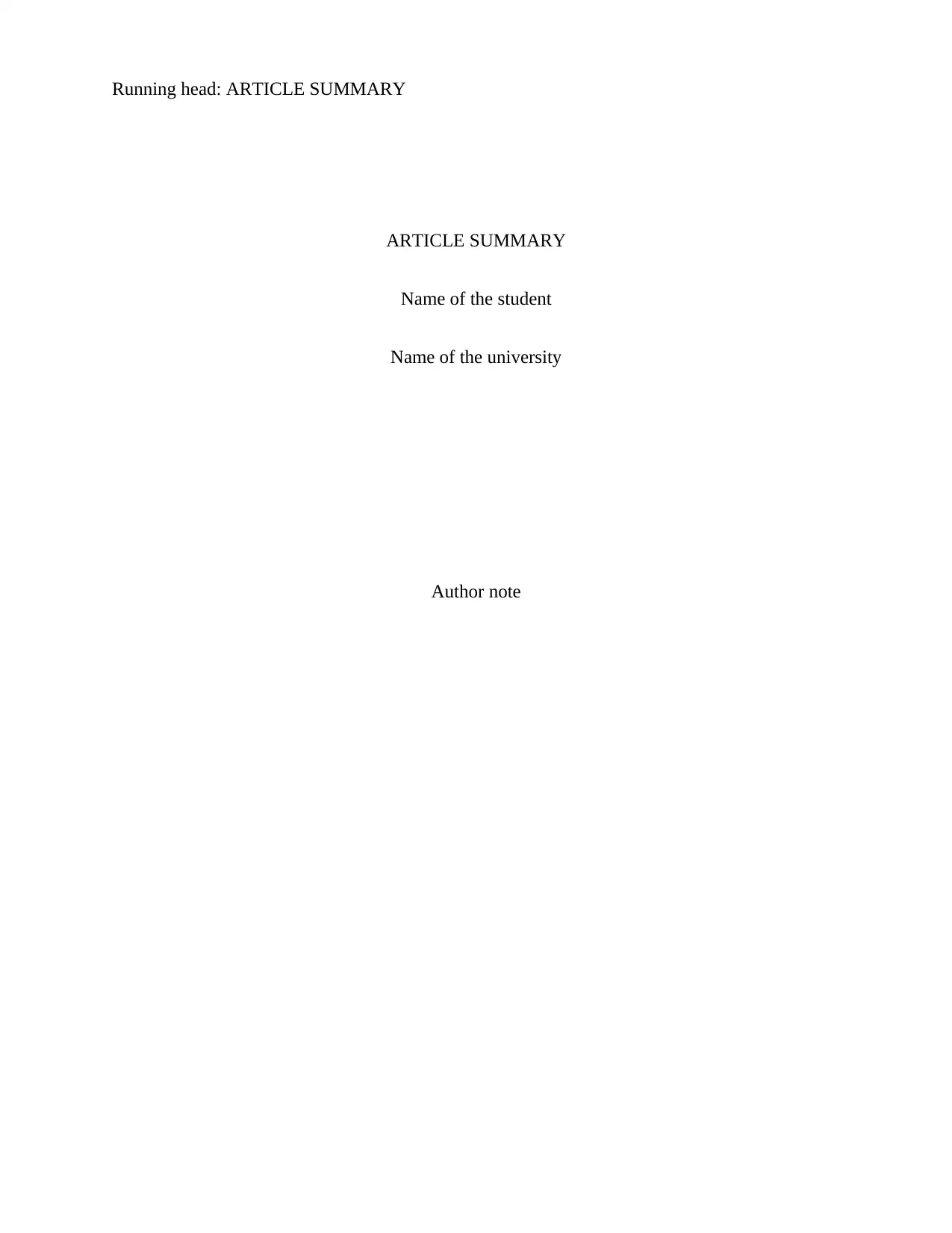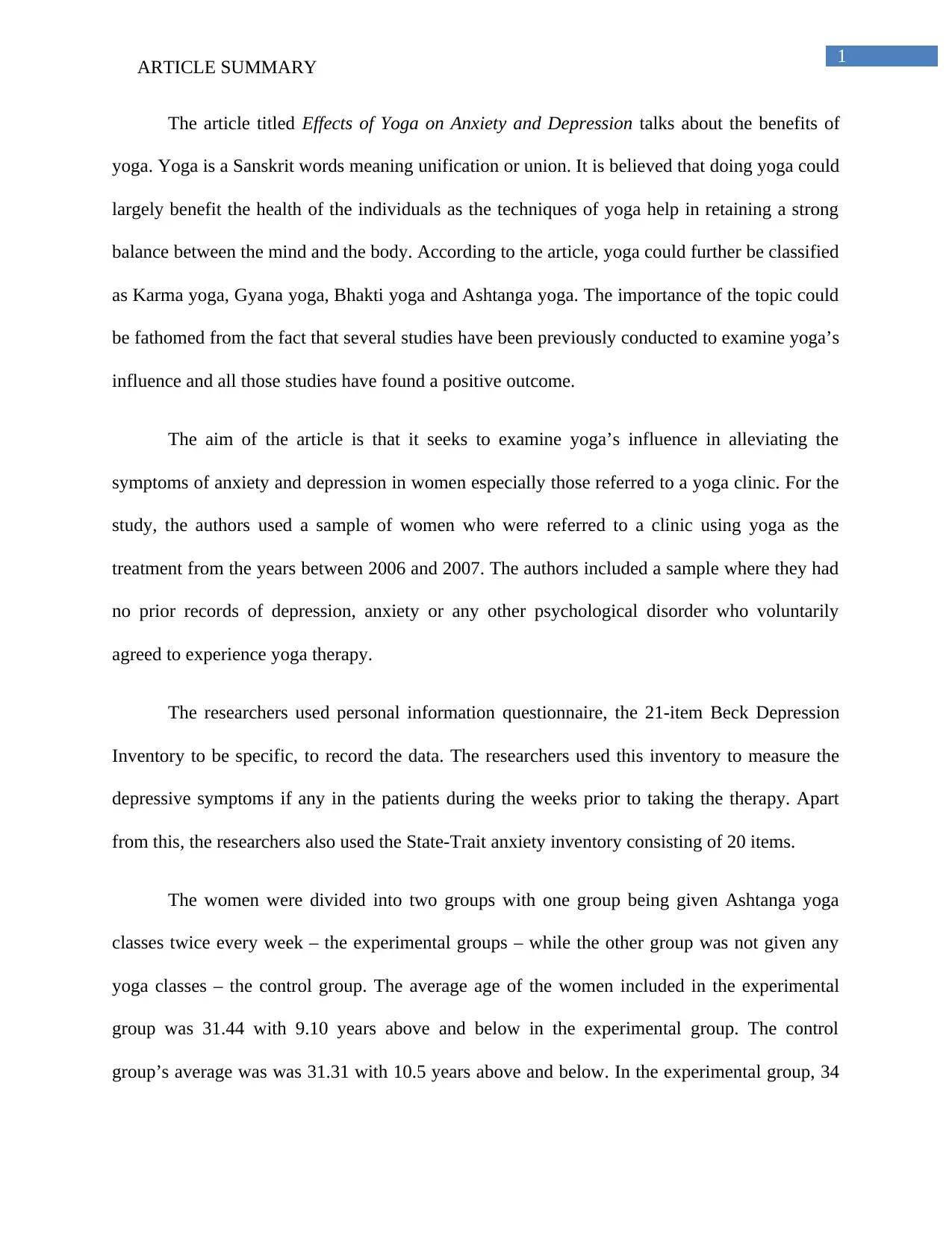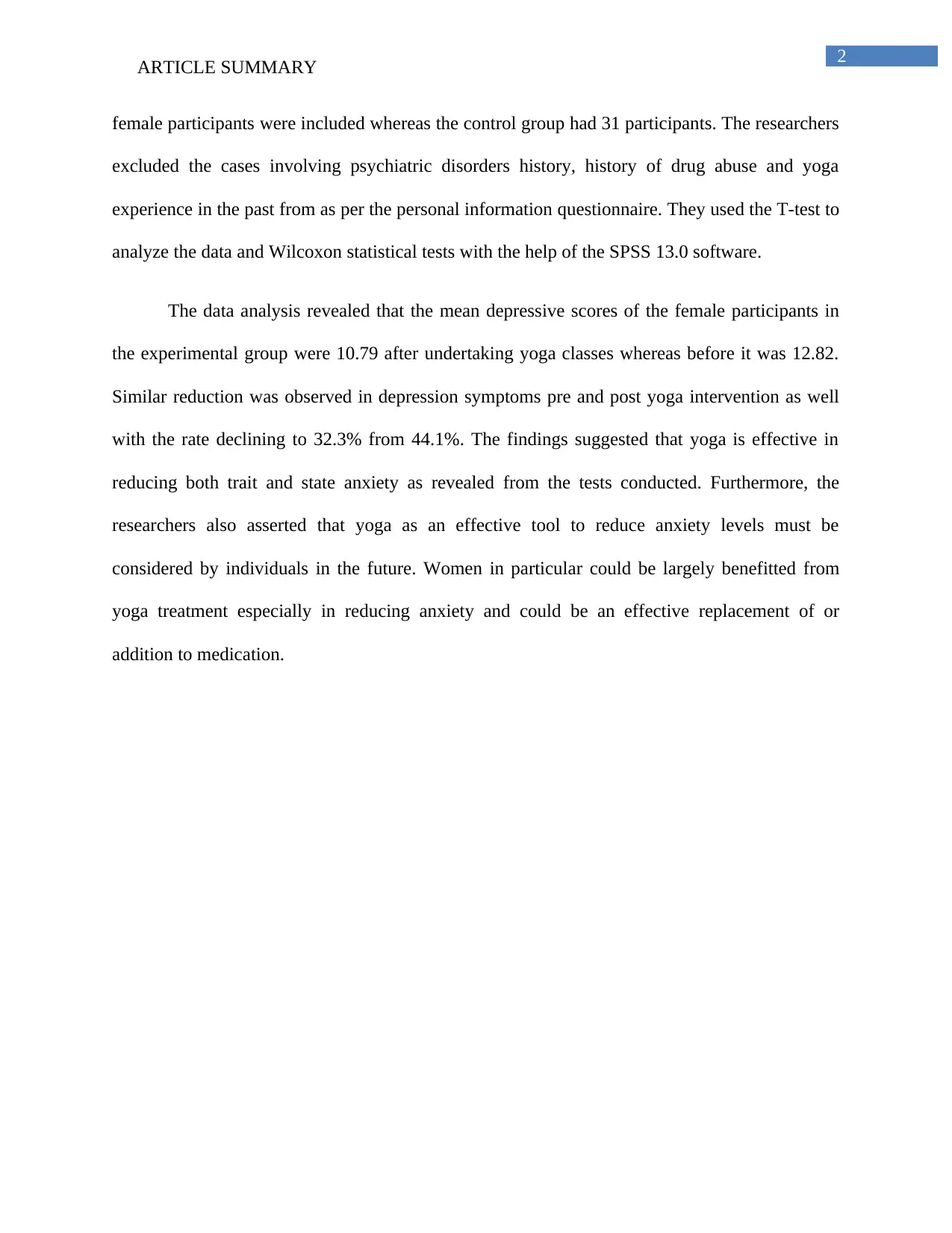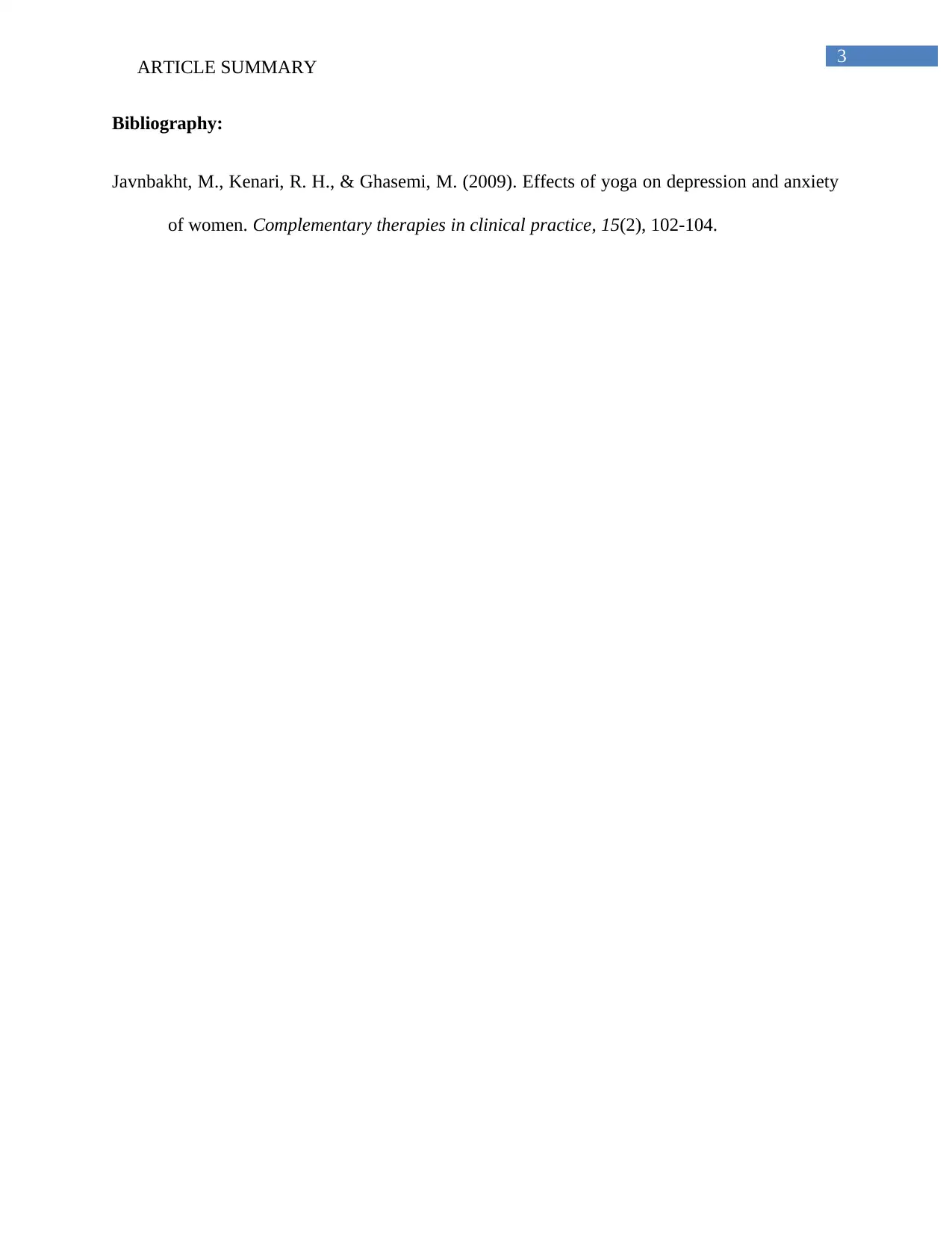Psychology Article Summary: Yoga's Impact on Anxiety and Depression
VerifiedAdded on 2022/10/11
|4
|602
|6
Homework Assignment
AI Summary
This article summary examines a study on the effects of yoga on anxiety and depression, focusing on a study involving women referred to a yoga clinic. The study aimed to determine the impact of yoga on alleviating symptoms of anxiety and depression. Participants were divided into experimental and control groups, with the experimental group attending yoga classes. Data was collected using personal information questionnaires, the Beck Depression Inventory, and the State-Trait Anxiety Inventory. The results indicated that yoga effectively reduced both trait and state anxiety, as well as depressive symptoms. The study highlights the potential of yoga as a therapeutic tool for managing anxiety and depression, particularly for women, and suggests its consideration as a potential alternative or supplement to medication.
1 out of 4











![[object Object]](/_next/static/media/star-bottom.7253800d.svg)